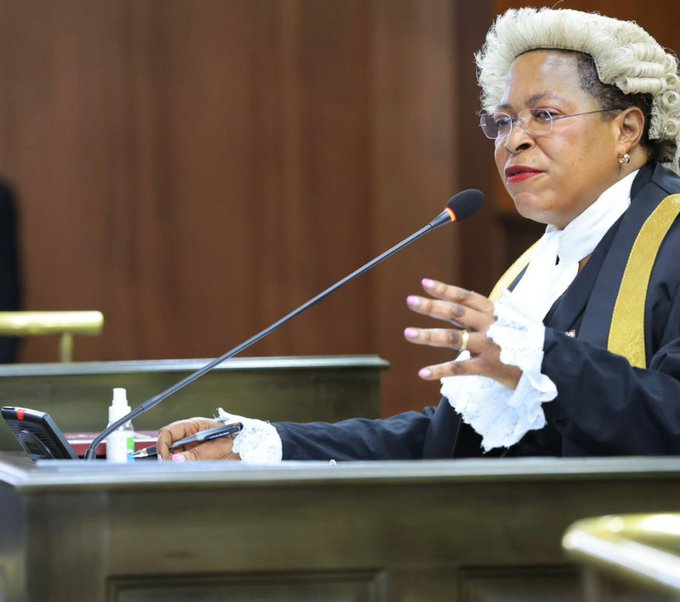Parliament passes UPDF Amendment Bill allowing civilian to be tried by Military Courts
Despite attempts by some MPs to block the presentation of the Minority Report, Speaker Anita Among insisted on allowing all sides to be heard, emphasizing the importance of diverse perspectives in the legislative process.

The Uganda Peoples’ Defence Forces (Amendment) Bill, 2025, has been passed into law by the Ugandan Parliament, sparking significant controversy and raising concerns about the potential erosion of civilian rights and judicial independence. The most contentious aspect of the bill allows for the trial of civilians in military courts, a measure previously deemed illegal by the Supreme Court.
The bill has ignited a fierce debate between those who argue it is necessary for maintaining military discipline and national security, and those who fear it undermines the principles of fair hearing and natural justice, potentially violating the constitution.
Wilson Kajwengye, Chairperson of the Defence and Internal Affairs Committee of Parliament, presented the committee’s report, arguing for the bill’s passage. He stated that the committee acknowledged the sensitivity of the issue and concluded that “the trial of civilians by military courts should occur only in exceptional circumstances, ensuring that a fair trial is guaranteed.” However, the definition of “exceptional circumstances” remains vague, fueling concerns about potential abuse.
The bill faced strong opposition, most notably in the form of a Minority Report presented by Moses Okot Junior. Okot vehemently opposed the bill, arguing its provisions violate the constitution and undermine the independence of the judiciary. He emphasized the principle that the General Court Martial (GCM) should be subordinate to the High Court. “Granting the GCM powers to try capital offenses would be unconstitutional,” Okot stated.
Okot further argued that military courts martial cannot be impartial and independent, rendering them inherently unconstitutional. He believes the inherent nature of military courts makes them offensive to the principles of fair hearing and natural justice, raising serious concerns about due process for civilians brought before them.
Furthermore, Okot called for the rejection of the bill due to a perceived lack of adequate public participation and consultation during its drafting and debate.
Despite attempts by some MPs to block the presentation of the Minority Report, Speaker Anita Among insisted on allowing all sides to be heard, emphasizing the importance of diverse perspectives in the legislative process.
Adding to the complexity of the debate, MP Fadhil Chemaswet defended the bill, arguing that military courts martial are critical for enforcing discipline within the military. He framed the bill as a necessary tool for maintaining order and effectiveness within the armed forces.
The passage of the Uganda Peoples’ Defence Forces (Amendment) Bill, 2025, is likely to have significant ramifications on the legal landscape of Uganda. Critics fear the new law could lead to the arbitrary trial of civilians by military courts, potentially undermining their fundamental rights. The vagueness surrounding the “exceptional circumstances” justification raises concerns about its potential for misuse.
The passing of this bill sets the stage for potential legal challenges and continued debate over the balance between national security, military discipline, and the protection of civilian rights in Uganda. The legal community and civil society organizations are expected to closely scrutinize the implementation of the new law and advocate for the protection of fundamental rights throughout the process. The implications of this legislation will undoubtedly be a subject of ongoing discussion and legal scrutiny in the coming months and years.







